Abhyanga: The Art of Self Love through Massage For Pregnancy and Post Partum Bliss
Photo by Kieralillesve Foto
The body of one who uses oil massage regularly does not become affected much even if subjected to accidental injuries, or strenuous work. By using oil massage daily, a person is endowed with pleasant touch, trimmed body parts and becomes strong, charming and least affected by old age.
Charaka Samhita Vol. 1, V: 88-89
Giving birth is one of the most powerful experiences a woman will have in her life. To go through pregnancy and childbirth feeling clear, connected, blissful, devoted and loving, mama will transfer these feelings directly to the child. By using the practices from the ancient science of Ayurveda, one can achieve a balanced body, peace of mind and bliss in the spirit!
Everything that a woman experiences during this time is directly transferred into the growing life inside her body. Massage, skin care, footbaths, compresses, aromatherapy, and sacred bathing will increase the connection between mama and her growing baby.
What is Abhyanga? In Sanskrit, the ancient, vibrational, written language from India, abhy means to rub and anga means limb, so together they make up the word massage.
Abhyanga is an anointing of the body with warm oil, often infused with healing herbs and balancing essential oils.
In the West we are beginning to catch on to the importance of massage from a wellness and preventative health standpoint.
In Ayurveda the healing aspects of Abhyanga include relaxation of the muscles and calming of the nervous system as well as attention being paid to many subtle healing aspects that make it a holistic healing modality.
The act of anointing the body with warm, herbal oil is called snehana. The Sanskrit word sneha means oil and love. The benefits of regular snehana invite the same qualities as being deeply loved, loving yourself and loving another: strength, stability, openness and warmth.
More benefits of Abhyanga as stated by the ancient Ayurvedic text, Astanga Hridaya:
· Improves Sleep
· Promotes sturdiness of the body
· Promotes longevity
· Nourishes the body
· Promotes better eyesight
· Prevents and corrects affliction of the nervous system
· Overcomes fatigue
· Prevents and corrects the aging process
· Detoxification of the body
In the Charak Samhita, another ancient Ayurvedic text, abhyanga in the form of snehana is said to be like a pot smeared with oil and the impurities of vata, pitta, and kapha cannot stick to it. In the same way, if the body is properly oiled with abhyanga daily, impurities cannot penetrate and disease cannot develop.
Abhyanga is best performed daily before bathing or showering. After the warm oil is massaged into the skin, it is best to sit for 15-20 minutes in a warm room to allow the oil to penetrate deep into the tissues.
Depending on your current state of balance and the seasons you can choose the most balancing oil for you.
Using warm oil is very nurturing and nourishing to the entire physiology.
Feel free to use a plain base oil if you are sensitive to essential oils in any way.
During pregnancy when mixing essential oils with a base oil, I recommend the ratio of 2 oz of base oil to 10 drops total of essential oil. When you are not pregnant and during postpartum, 2 oz of oil to 20-25 drops of essential oil is recommended.
Essential oils can greatly enhance the emotional and spiritually balancing aspects of the abhyanga and so I highly recommend adding 1-4 of the recommended oils below to your base oil.
For Spring and Kapha (cold and wet) types choose organic sesame oil, jojoba, olive oil or safflower oil. Add your choice of eucalyptus, frankincense, sweet orange, lavender and rose.
For Winter, change of seasons and Vata (dry, cold, light) types choose organic sesame oil, olive oil, almond oil and essential oils of chamomile, lavender, ylang ylang, geranium, and rose.
For Summer and Pitta (hot, inflamed, oily) types choose coconut oil, sunflower oil, safflower oil, almond oil and essential oils of sandalwood, rose, lavender, sweet orange, chamomile, tangerine, and geranium.
How to Perform a self massage/ Abhyanga
Remember you are anointing your body with oil as a way of loving yourself and to increase your state of health in your mind, body and spirit. Take your time, be gentle and soft with yourself. You are also offering loving vibrations to your baby and encouraging their growth in a positive way.
1. Choose your base oil and essential oils. Generally a safe proportion is 2 oz of base oil to 20-25 drops of essential oil.
2. Heat up your massage oil. Warm the oil in its container in a sink full of warm water or a large Pyrex measuring cup filled with warm water.
3. Begin by applying a small amount of oil to the top of your head. Massage the top of the head in a clockwise manner with the center of your palm. This is the Maha (great) Marma point and regulates the amount of prana that moves throughout the body.
4. Next apply oil to the entire body beginning with the neck and arms. Remember to do circular motions over the joints and long strokes on the limbs.
5. Clockwise circular strokes will be performed around the breast area and on the abdominal area.
6. Continue sequence to hips, buttocks, legs and ending on the feet.
7. Let the oil soak in for 15-20 minutes for maximum benefit. Be sure to stay out of drafts and in a warm space at this time.
8. Take a warm bath or shower. Use gentle soap, it is good if a little oil remains.
9. Repeat daily.
Enjoy the benefits of daily Abhyanga and your growing connection with your baby!
For more on our postpartum offerings for mamas in Boulder County, click here!

